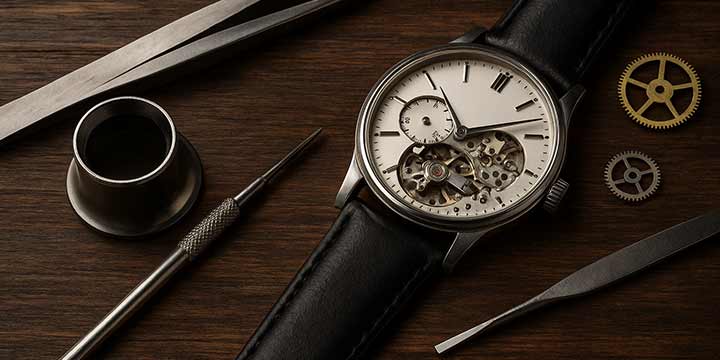The Renaissance of Watchmaking: A Profession of Tradition and a Bright Future
In an era where artificial intelligence and robotics are rapidly transforming entire industries, one craft remains untouched by automation: watchmaking.
Skilled watch technicians are among the most sought-after professionals today across Europe, America, and Asia, as the precision, artistry, and human touch required to assemble a mechanical timepiece simply cannot be replicated by machines.
A Global Shortage of Skilled Watchmakers
The global watch industry is facing a significant shortage of qualified technicians. Many experienced watchmakers from previous decades are retiring, while younger generations tend to pursue more “digital” careers. The result? Hundreds of vacancies in major watchmaking houses across Switzerland, France, Germany, (many countries of central and north Europe) the United States, and Japan.
In Switzerland, companies such as Rolex, Patek Philippe, and Omega are investing heavily in training programs for new artisans, as the demand for the maintenance and repair of mechanical watches continues to grow. In the United States, luxury brands and independent workshops now offer high salaries and long-term career stability to those with proper technical expertise.
A Craft That AI Cannot Replace
Despite the rapid advances in technology, watchmaking remains a profoundly human art form. No algorithm can replicate the sensitivity of the hand, the patience, the eye for detail, and the artistic intuition required to restore or regulate a fine mechanical watch.
Artificial intelligence may assist in diagnosing mechanical issues or producing components, but it cannot reproduce the handcrafted precision and emotional value of a timepiece built or repaired by a human being. Indeed, the prestige of a mechanical watch lies precisely in its handmade craftsmanship and traditional artistry.
A Profitable and Resilient Career Path
The rising demand for skilled watchmakers translates into competitive salaries and job security. A trained technician can work for major luxury houses, specialized service centers, or even open their own independent workshop, building a loyal clientele.
In Europe, experienced watchmakers enjoy above-average earnings, while the profession offers remarkable stability and long-term prospects.
The Art of Time
Beyond financial opportunities, watchmaking is a profession filled with soul, heritage, and creativity. Every watch tells a story—and the watchmaker is the storyteller who brings it to life.
In a world driven by speed and mass production, the art of watchmaking reminds us of the importance of precision, patience, and the human touch.
This timeless craft will never disappear. It will continue to evolve—yet always through the hands and passion of those who dedicate their lives to mastering the art of time.

